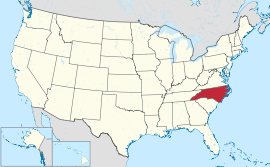MM Curator summary
North Carolina Medicaid expansion is tied to whether the state can have a work requirement, so the upcoming SCOTUS decision has a large impact on the TarHeel state.
The article below has been highlighted and summarized by our research team. It is provided here for member convenience as part of our Curator service.
One potential North Carolina path to Medicaid expansion — a controversial work requirement — has reached the U.S. Supreme Court.
Medicaid covers 2.2 million North Carolinians, with projections of expansion adding between 450,000 and 650,000 residents.
The justices are expected to review during their spring session the 3-0 D.C. Circuit Court ruling from February against work-requirement laws passed by Arkansas and New Hampshire.
The separate state cases have been consolidated by the Court.
Arkansas’ law placed a work, education and/or public service requirement on certain Medicaid recipients to qualify for benefits.
The N.C. General Assembly has not advanced a similar Medicaid-expansion work-requirement bill sponsored by Rep. Donny Lambeth, R-Forsyth, despite begrudging Democratic support.
Why? Because of intense Senate Republican opposition led by Senate leader Phil Berger, R-Rockingham.
Berger and other GOP legislative leaders claim the federal government could end its 90% match on additional administrative costs for expansion.
They also oppose an annual $758 million assessment that the state’s hospitals and health-care systems have agreed to provide to help cover the state’s 10% expense share.
However, several public-health advocates, as well as Lambeth, have said the GOP warning is unfounded.
Berger’s opposition carries more weight than similar Medicaid expansion scenarios in Idaho, Missouri, Nebraska and Utah because North Carolinians do not have the ability to initiate statewide ballot referendums.
As a result, there’s not much optimism that a favorable decision by the conservative-leaning U.S. Supreme Court on the work requirement would persuade senior GOP leadership to support Lambeth’s bill.
“The only potential option for any productive discussion on allowing access to Medicaid for North Carolina is some form of a work requirement,” Lambeth said.
Yet, Lambeth acknowledged that “even with that being allowed, it will be a very difficult decision for North Carolina going forward.”
Lawsuit background
The Trump administration’s Department of Health and Human Services approved changes in March 2018 to Arkansas’ Medicaid policies that allowed the state to add a work requirement for “able-bodied” individuals between ages 19 and 64.
The Affordable Care Act makes Medicaid available to households with incomes below 138% of the poverty line, or nearly $36,000 for a family of four. Arkansas’ waiver lowered the income level to qualify, thus reducing the number of eligible beneficiaries.
Residents in Arkansas and Kentucky sued U.S. DHHS in August 2018, claiming the agency acted “in an arbitrary and capricious manner” when approving the work requirements.
The three-judge appellate panel affirmed the D.C. District Court’s ruling that the agency “failed to analyze whether the (Medicaid work) demonstrations would promote the primary objective of Medicaid — to furnish medical assistance.”
Kentucky ended its Medicaid work requirement in December 2019, shortly after the election of Democratic Gov. Andy Beshear.
Lambeth had expressed confidence for several years that his Medicaid legislation — the latest version being House Bill 655 — has bipartisan support even with the work requirement.
HB655 stalled in the House Rules and Operations committee in September 2019 after Lambeth agreed to make a few changes and consider others requested by Democrats.
There are 36 states, though only Virginia in the Southeast, that have expanded their Medicaid program.
The Missouri and Oklahoma legislatures have adopted expansion, but it hasn’t been implemented.
Another path?
The 2019-20 N.C. budget stalemate hinged on Gov. Roy Cooper’s veto of the legislation, chiefly because the GOP budget does not include a form of Medicaid expansion and also contains a lower pay-rate increase for public school teachers than Cooper proposed.
Centers for Medicare and Medicaid Services has said it will not consider any Medicaid expansion waiver unless it has been passed by a state legislature.
With Cooper’s re-election and the Republicans maintaining their advantages in both chambers — Senate 28-22 and House 69-61 — there’s a significant likelihood that there could be gridlock on Medicaid expansion during the 2021-22 session.
That reality is a major reason behind a bipartisan push behind the N.C. Council on Health Care Coverage, which held its second of four scheduled meetings Friday.
Cooper and state Health Secretary Dr. Mandy Cohen are among the 44 participants that include five representatives with Triad ties: Lambeth; Sen. Joyce Krawiec, R-Forsyth; Winston-Salem businessman Don Flow, owner and chief executive of Flow Automotive Cos.; Sen. Gladys Robinson, D-Guilford; and Gene Woods, president and chief executive of Atrium Health, the not-for-profit parent of Wake Forest Baptist Medical Center.
The council features other members from the state’s health care, business and nonprofits sectors, as well as members of the Cooper administration and legislators from both sides of the political aisle.
The council focused on Medicaid expansion during the first virtual meeting on Dec. 4.
During Friday’s second meeting, some strategies discussed have conservative-backing, such as Association Health Plans for small businesses and reinsurance program.
Some are overall neutral, such as pursuing more innovation waivers through CMS.
Some are liberal leaning, such as increasing coverage for pregnant and postpartum women, and for parents with foster children.
Also a priority: increasing access to, and coverage of, behavioral health services, in particular for individuals with intellectual and development disabilities.
“I think that there are core principles that we can agree to, like the fact that more people in North Carolina deserve health insurance,” Cooper told The Associated Press.
“This is not just purely a Medicaid expansion issue.”
Forecasts
Mark Hall, a public-health and law professor at Wake Forest University, said the Court could clarify what authority the federal government has to authorize individual-responsibility requirements for Medicaid enrollees.

